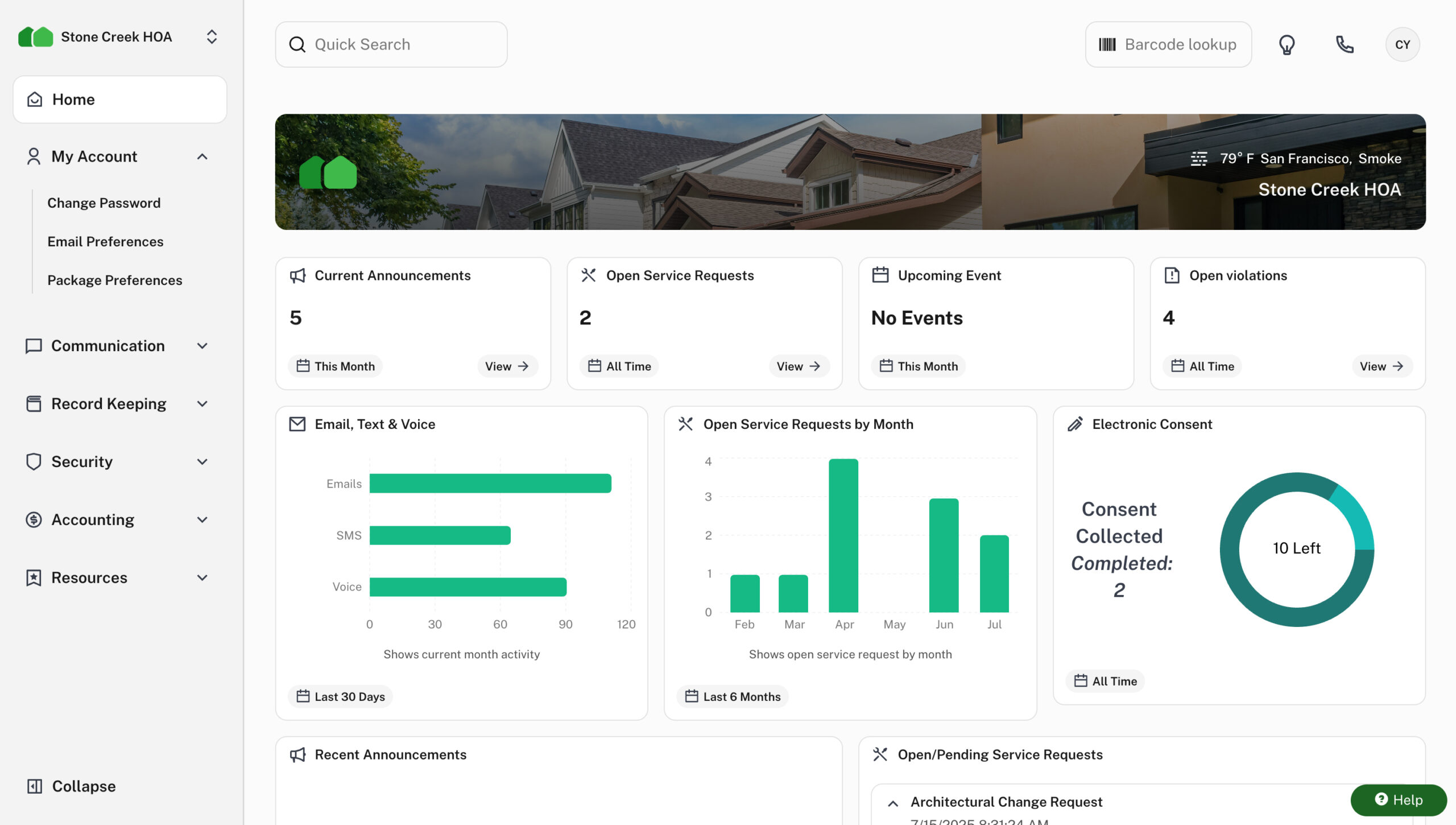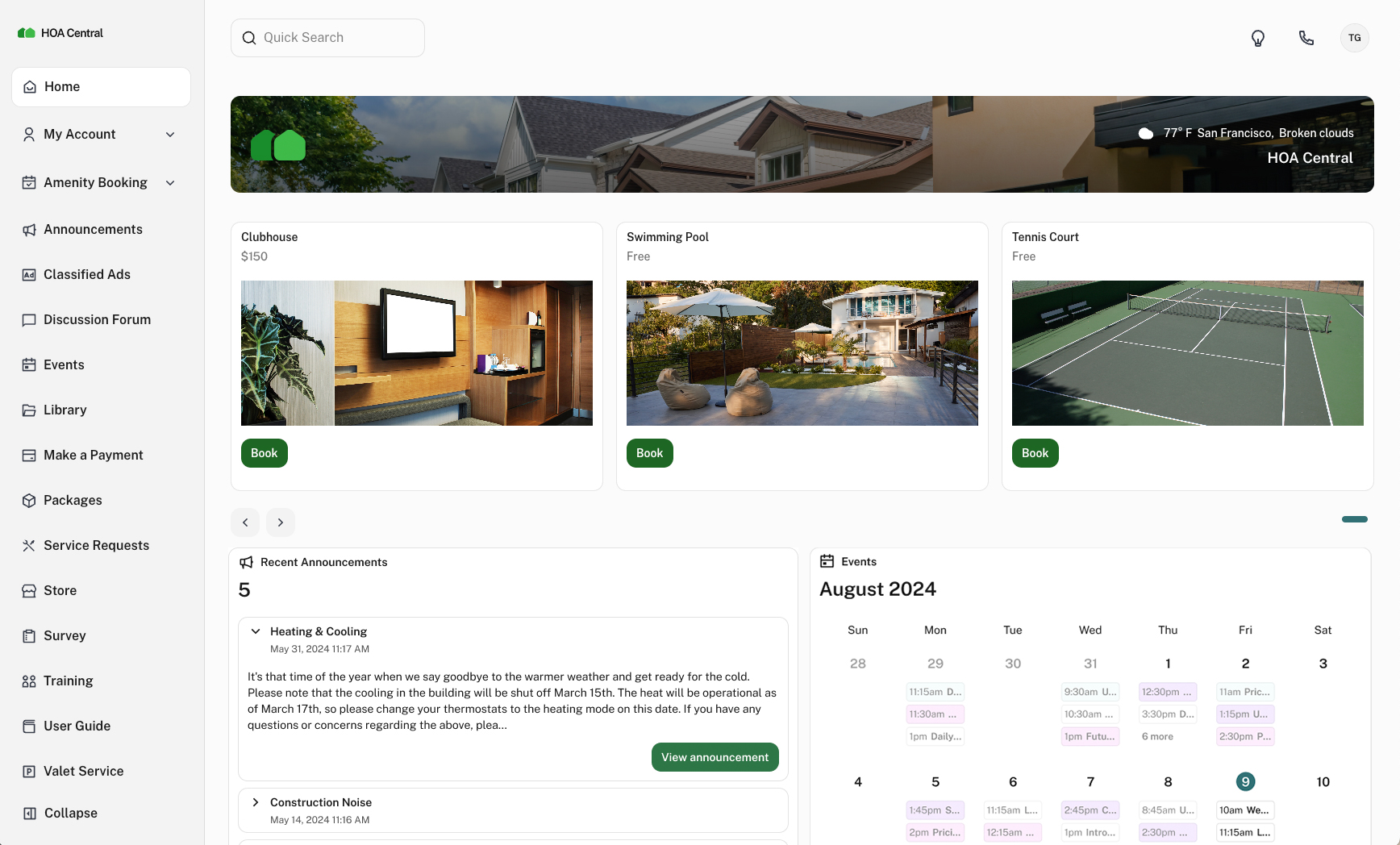6 big mistakes large HOAs make

We’re not trying to embarrass any large HOA. Quite the opposite, we recognize that caring for a big community is really, really difficult.
With so many people and so many moving parts, it’s impossible not to make a mistake here and there. The important thing is to learn from mistakes so that your community doesn’t repeat them.
If you are a seasoned board member or HOA manager, share your wisdom with new members so that they can avoid falling prey to these mistakes listed below.
Table of contents
- Working outside of the board (or your authority)
- Poor record keeping
- Disjointed communications
- Acting before getting legal advice
- Not knowing how to delegate
- Adopting too many solutions
1. Working outside of the board (or your authority)
There is a misconception that the president takes on the brunt of the workload, or has the final say. While some communities do operate this way, boards are supposed to work as a unit.
That means you shouldn’t be holding meetings with vendors or owners without the other board members. Even if you just want to help, other board members may feel that you want to exclude them from HOA business.
In most cases, boards should have the community manager handle communications with owners or vendors. This way, there is no confusion about who the point of contact is (and managers tend to be more neutral since they don’t live in the community).
Similarly, you should never work outside the authority granted to you by state laws and governing documents.

For example, if homeowners are complaining about speeding cars within the community, but the streets are publicly owned, you couldn’t issue fines to drivers going over the speed limit because the roads don’t belong to the association. Though frustrating at times, it is critical to lead by example and follow the rules.
2. Poor record keeping
Large HOAs may exchange hundreds of documents every day. Having a reliable, secure recording-keeping system is very important to ensure resources are not wasted and owners aren’t waiting for days to review a simple budget or policy.
Poor record-keeping can also create inconsistencies for board members and communities. Maybe a board tracked data a certain way, but once their term ended, the new board did not receive the records and had to come up with a different process. Different parameters lead to different results, and that can impact the HOA’s bottom line.
Even with a community manager, some large HOAs experience issues because they hire new companies, but their data gets lost or misplaced between transitions.
For this reason, HOAs are strongly encouraged to maintain digital records, and use software that they have purchased. This way, if a property management company leaves, the data stays with the association.
3. Disjointed communications
You’ll start to notice a theme here. Without a reliable, accessible communication system in place, there will be problems within the HOA. Owners will ask questions or make requests via email, over the phone and in person.
At some point, a request will be forgotten, and the owner will become upset. If this happens often, and people don’t feel like they are being heard, they are more likely to break rules, skip meetings and lose respect for the board.
Create a communication system that works for everyone. With so many people to care for, a digital solution is often necessary. A platform like HOA Central makes it easier to manage requests and bookings, and share announcements instantly. Consolidate and streamline communications to improve operations and owner satisfaction.
4. Acting before getting legal advice
If you’re ever unsure about what to do next when an owner is unwilling to work cooperatively, or is pressuring the board for an answer, ask for help from your attorney.
Avoid the temptation to tell the owner what they want to hear just to get rid of them. While this might be a temporary fix, you could end up putting the community in a compromising position.
Instead, acknowledge that you’ve heard their request/complaint, and let them know the matter needs to be discussed with the board before you can respond.
Always respond to owners in writing. Keep records of all correspondence, especially when the matter could create legal challenges for the association. These records may be needed for evidence if the issue needs to be presented to a judge.
5. Not knowing how to delegate
Even if board members worked 40-hour weeks, there would still be things to do. However, most board members still have full-time jobs, families, and other obligations outside of their volunteer roles.
Delegating work allows board members to continue doing the important work without getting bogged down with day-to-day responsibilities…or burning out.
Of course, they can hire a community manager to issue violations, collect payments and send responses to owners, but they can also form committees to handle various tasks within the association.
An architectural review committee, for example, can oversee architectural requests, make recommendations, and support compliance with architectural guidelines. A financial committee will handle budgetary concerns, including managing investments and tracking expenses.
It’s nearly impossible for a board of a large HOA to manage everything on its own. Trust that others can take on some of the work, and thank them for the work that they do!
6. Adopting too many solutions
Big community associations may currently use 4 or 5 different software platforms to address all of the challenges they encounter. This is because one program might handle communications really well, but does not assist with access control. Another program specializes in HOA security, but doesn’t address finances.
While having multiple software solutions is better than trying to tackle these challenges without them, juggling multiple programs creates its own problems. Admins must add and update data constantly, and logging in and out of programs is tedious and inconvenient. It’s easy to make a small mistake when working with 5 different programs, but finding the error is more difficult.
Large communities are encouraged to look for a platform that can do almost everything really well, and integrate with other top-performing HOA solutions. This way, admins are only dealing with a couple of platforms, and updating data once. The integration functionality allows for a one-way or two-way data sync, which reduces time spent on data entry, as well as manual errors.
Conclusion
Caring for a large HOA is difficult, but implementing good processes to maintain cleaner operations will make the job significantly easier.
Board members who can plan and act with intention will find that they can complete tasks more effectively, and achieve goals in less time.
If a mistake is made, be honest with other board members, ask for help if needed, and figure out what you can do to ensure the mistake is not repeated.






